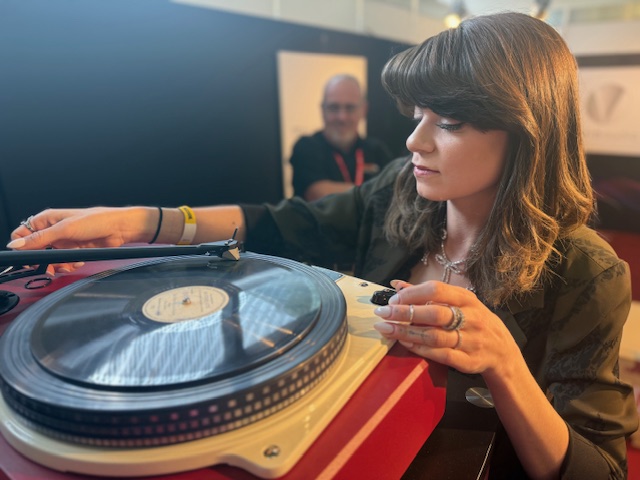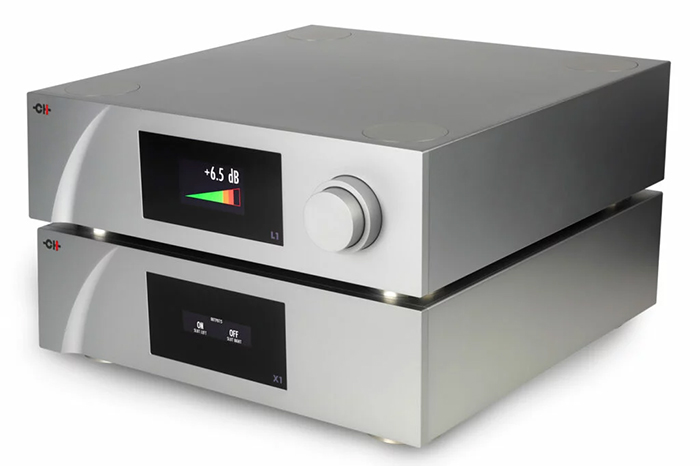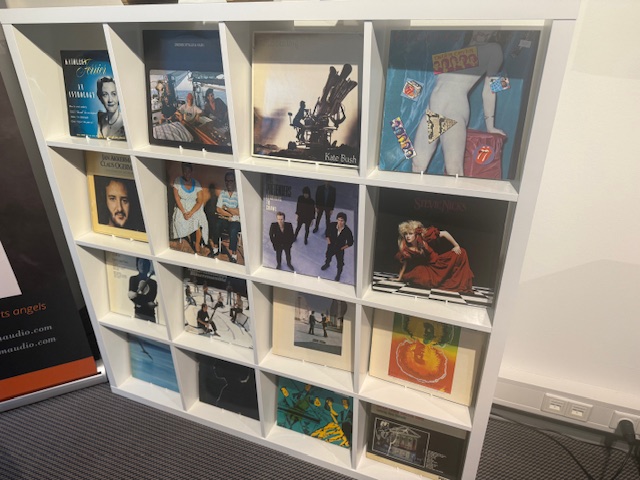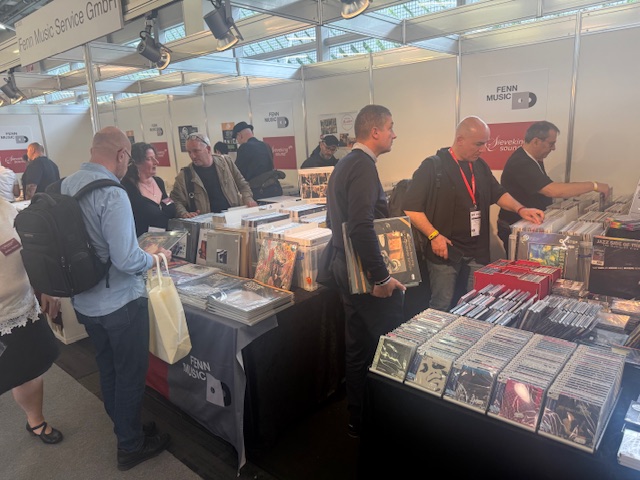For most audiophile enthusiasts, our hobby is one best mandated by a provable hypothesis and not by unrealistic claims. We employ manufacturers to realistically corroborate performance specifications for which they claim their equipment is capable. Audiophiles, we tell ourselves, live in the real world where sonic excellence is not only objective, but also verifiable. In short, support claims with facts, let us listen, and we will be the ultimate arbiters of whether or not those facts are with merit.
Non-audiophiles, on the other hand, listen to music in a manner which those of us deep into the hobby may possibly easily dismiss as non-scientific and/or even possibly uninformed. Audiophiles listen to music based on a predetermined set of rules and values. We seek to determine if the highs are too bright or too far back in the presentation. Is the recording too compressed? Are the lows bloated and do they rumble around the room, causing catastrophic low-frequency deficiencies? Are the mids sounding tight, and are instruments created from a singular, “black” background? Are all instruments individually identifiable? Is the presentation sufficiently dynamic? Does the imaging sound natural and believable? The list of what may be right and wrong is both vast and complex. Audiophiles listen for all these indicators, and more, before rendering a judgment on the capability of the system to extract a requisite level of sonics enabling spectacular-sounding music. We want to be wowed. We want that mic-drop moment.
Non-audiophiles, by contrast, just want to hear and enjoy a song (or an album) that they are into. Their level of judgment may not realistically extend beyond whether the song has a good beat, and can they sing along and/or tap their foot while doing so. And guess what … there is absolutely, positively nothing wrong with this manner of enjoying music. Nothing. I sometimes wish my only musical barometer was a good beat. This seems to beg the question: am I being too judgmental in my evaluations of music?

Do Audiophiles Listen for What is Wrong or Right?
This seemingly innocuous question, when I first asked myself what I normally do, caused me to question my entire listening protocol. I see a verifiable difference in those two methodologies. When we make a change of some type, be it a new component, new speaker or a better and higher level of audiophile cable, it seems obvious we want to hear improvements. This is completely and totally logical.
But this also, in my view, anyway, causes a conundrum of sorts. When I make a change to my system, I am manifestly looking for noticeable, readily identifiable improvements. New equipment almost requires an easily noticeable improvement. If I play a song with which I am intimately familiar, I want to verify if the bass response is now superior and, if so, how it is better and by how much. Same for the midrange and high frequencies. I’m looking to hear if the new gear or system change delivers what we audiophiles call PRaT – pace, rhythm and timing. How does the imaging compare to before? In fact, I am listening to a whole host of cues intended to allow me to render an informed judgement on the new piece of equipment. At least this is what I have consistently told myself.
In thinking about this more, I came to the conclusion of being faced with two realistic possibilities. One, because I have something new and supposedly improved beyond something currently in my system, am I expecting to hear an immediate and easily noticeable improvement in the sonics my newly modified system produces? Or, conversely, am I trying to identify the deficiencies the new whatever is obviously going to create? Does a change automatically compel me to hear improvements, or am I circumspect and hold with the practice of listening for what is wrong? And if all I hear is what is wrong, am I therefore limiting myself on the veracity of a new piece of equipment?

Does Price Make a Difference in How We Judge the Sonics We Hear?
To an equipment reviewer, this concept makes perfect sense. But even as regular consumers, we make changes not because we want to reduce sonic excellence; we want to obviously improve what we hear. My belief is price is a definite influence on our sonic expectations and biases.
If an audiophile decides to purchase a set of floorstanding speakers, for instance, which are three times as expensive as a current pair, this purchase is contemplated, and ultimately made, because the singular expectation is for improved sonics. We would all feel quite foolish if we bought a pair of speakers three times as expensive as a current pair, only to discover their performance was inferior to the speakers intended for replacement.
In my July 2 article, What Are Audio Psychoacoustics and Do They Apply to Your Listening Efforts (read article here), I touched on the possibility of the acceptance of improved sonics of new gear because our ear/brain mechanism is playing some sort of trick on us. This is a legitimate question – do we hear an improvement because one actually exists, or are the sonics improved because a new and more expensive component change mandates one? Is component price in any way tipping the scales in favor of better sound? Are the improvements we tell ourselves we are hearing real or imagined? How do we therefore reconcile the possibility of the improvements we perceive being real or imagined?
Speakers Make Answering This Question More Difficult
As it applies to listening practices, speakers very likely stand alone when it comes to listening for what is right, as opposed to what is wrong. This is especially true when comparing how differently audiophiles and non-audiophiles listen to music. I cannot remember any speakers I have ever used in my system and, upon first installing them, my initial listen was to identify what was wrong. Because a new speaker very often has a different design, frequency response, dynamic capabilities, compression, and overall musicality will almost certainly be different than a previous reference pair. On the first listen, are we expecting the joy and exhilaration of a mic-drop moment, only to be disappointed when one does not happen? Had we been listening for what was right as opposed to what was wrong, would our viewpoint be different, or would we have still been disappointed when any presumed improvements did not materialize? Most importantly, when this happens, are the new speakers worse-sounding, or just different?

Is Listening in a Non-Audiophile Manner Wrong?
The simple answer is: certainly not. I have spent many hours in the listening chair just passing time for enjoyment’s sake. I cared very little, probably not at all, about bass response, dynamics, soundstage, imaging, and all the other audio metrics I repeatedly use in evaluation mode. Sometimes I just want to listen to a song with a good beat and one with a toe-tapping feel. Singing along is, of course, optional …
How then, when listening in this way, am I substantively different from a non-audiophile? And do I think of myself as being more evolved musically because I am an audiophile and listen for things about which non-audiophiles could not care less? Suffice to say the assumption of audiophile superiority is a whole different question best left for another day. But it does make me wonder if my approach is perhaps just a little skewed.

Final Thoughts on Whether Audiophiles Listen Differently Than Non-Audiophiles …
We all have a complete understanding of our own personal systems (check out mine here) because we’ve lived with them through all of their iterations. Additionally, we have knowledgeable familiarity with the space in which our systems reside and how the rooms affect sonics. Ultimately, I have come to the decision that, for me, in my system, when I listen to music or make any changes, systemic or otherwise, I am listening for attributes I find engaging to the music. So, from my perspective, I’m looking for the positives. Obviously, should I actually hear something I find displeasing, it creates the need for a decision on that specific change. I also feel compelled to acknowledge there are those who might be looking to find sonic deficiencies and, when they find something they perceive as a flaw, it suddenly becomes an “aha” moment.
And however difficult it may be for myself, or any audiophile, to reconcile whether our listening practices are too involved, and if our obsessing over details the predominance of the music listening world would seldom notice contribute positively to our experience, I must acknowledge it is part of the process. Not necessarily as a reviewer, although critical listening there is required, my listening practices are something I continue to improve. I am an audiophile and I readily admit I sometimes listen to music differently than my non-audiophile counterparts. Doing so does not make me correct and anyone else misinformed. This is not a question of right or wrong. It is more a determination of a subjective evaluation of a goal – the goal of musical amazement.
I have never had a non-audiophile in my audio room (I wrote about a non-audiophile dinner party) who did not find my system and the sonic excellence it rendered simply astonishing. However, I am also confident not one of those visitors ever left my home with a determination to build a system of their own. They had probably forgotten all about my system before reaching the end of my driveway. Which is fine.
I understand the audiophile practice is a more involved way to listen than just being happily engaged with a song with a good beat. Those who do not follow our beloved hobby may question our beliefs and practices. The salient difference between how we and non-audiophiles listen to music is an additive process – that is, we listen for what is right and wrong. And if everyone else does not follow our path, I’m happily content with the difference.




This is very insightful and interesting! Here are my 2-cents-worth… (1) We audiophiles (myself included) too often listen to the hardware instead of the software (the music). Remember to “cut yourself some slack” and enjoy the music even if it’s not 100% perfect technically. Remember…hi fi gear is only a means to an end: music. (2) Don’t equate cost with performance. These days, the two don’t always align. And (3) here’s a trick to improve the imaging of your system: close your eyes. This really works! If you’re staring at the space between your speakers, your brain’s visual input (what you see) will NOT agree with what you’re hearing. You’re hearing an orchestra, but you don’t see one…so….your brain prevents the acoustic image from developing. If you close your eyes, you eliminate the visual input and the conflicting information. Your brain will now allow an acoustic image to form, and suddenly you’ll sense a realistic acoustic “image” of the orchestra. It works for me.
Hank,
Thanks for your very kind words. I’m glad you enjoyed the piece. I would also agree if you close your eyes a different presentation presents itself. Our ear/brain process is really amazing. There’s a lot going on and most of us really don’t understand everything. Happy listening!
Paul